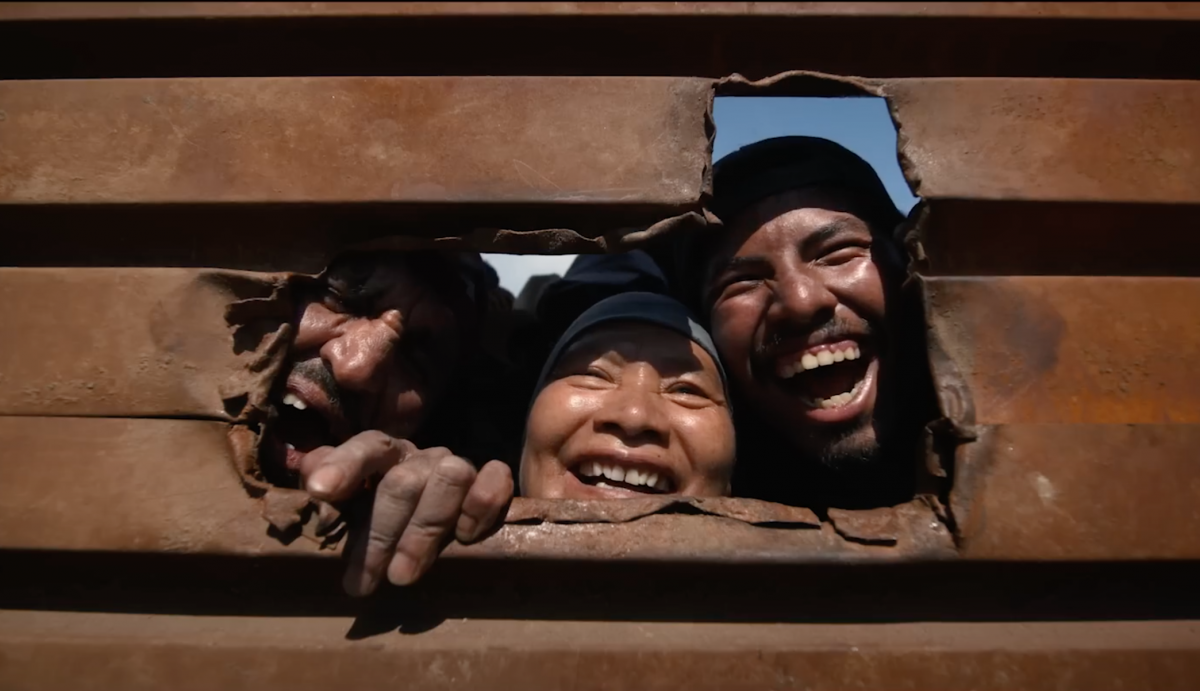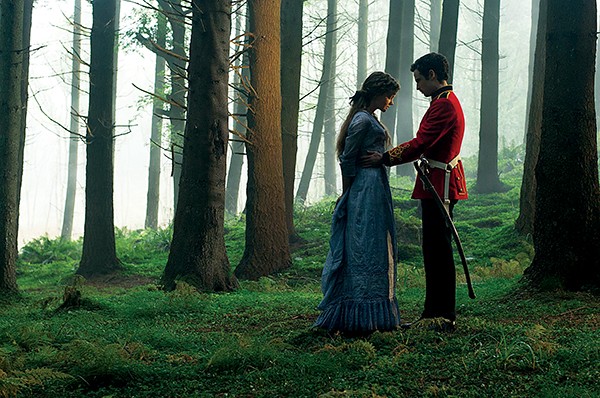Sarah Gavron’s new film Suffragette looks and feels like a fresh hunk of Oscar bait.
Now, you might be wondering what exactly “Oscar bait” is. Although noted author and peerless Academy Awards handicapper Mark Harris hates the term and wishes it would go away, Oscar bait is real, but it is seldom spectacular. You’ve seen Oscar bait before. Perhaps you’ve even enjoyed some of it. Maybe you’re an Argo kind of gal; me, I’m partial to animal-centric heart-tuggers like Spielberg’s War Horse. Wikipedia defines movies like these as “Lavishly produced, epic-length period dramas, often set against tragic historical events such as the Holocaust,” that “often contend for the technical Oscars such as cinematography, makeup and hairstyling, costume design, or production design … The cast may well include actors with previous awards or nominations, a trait that may also be shared by the director or writer.”
I might also add that movies like these typify a strain of safe, grade-grubbing, color-between-the-lines moviemaking that’s engineered for mature adults uninterested in or unresponsive to important aesthetic qualities like vulgarity, coarseness, economy, and wit. They also arrive on schedule every autumn. Once the leaves start to turn and the superhero franchises go into hibernation, these simple, proper, “sophisticated” films start showing up in theaters like fashionably late guests trying to class- up a kegger.
At first glance, Suffragette fits the Oscar bait description. At 106 minutes, though, it’s merely a normal-length period drama that’s set in 1912 England. The tragic historical event that drives its story and galvanizes its characters is, thankfully, not World War I; it’s the women’s suffrage movement, a time when many brave women exhibited surprising courage and resilience but were met with patronizing indifference and/or brute force.
Yet in a few key ways, Suffragette struggles against its prestige-picture corset. The production design is shrewd and economical but unspectacular, the cinematography serves up the same gruel-like gray found in any movie about the miseries of early 20th-century factory work, and the makeup, hairstyling, and costume design, while impressive at times, probably isn’t ostentatious enough to garner awards. Nevertheless, there’s a trio of Emmy or Oscar-nominated actors (Carey Mulligan, Brendan Gleeson, and Helena Bonham Carter) knocking heads here, and about midway through the film one multiple-Oscar winner shows up to bless the proceedings.
Suffragette‘s weird, bellicose sentimentality is also atypical for Oscar bait. It feels like a byproduct of Gavron and screenwriter Abi Morgan’s attempts to identify and harness the numerous energies — domestic, political, paternal, spiritual — that powered the movement they depict. Unfortunately, such energies often dissipate when set against Alexandre Desplat’s insufferable, obvious orchestral score. To its partial credit, though, Suffragette is a messy, distracted film that, like its laundress-turned-activist heroine Maud Watts (Mulligan), isn’t sure what exactly it wants to be.
It begins as a lively, idea-heavy drama about the validity of violent revolution, narrows its focus to document the social cost of one woman’s gradual political awakening, and plays around at being a cat-and-mouse detective story for a scene or two before reinventing itself as a gauzy, delicately colored reenactment of a shocking historical accident that had a monumental impact on both the English suffrage movement and suffrage efforts from around the world.
The performances are fine: Mulligan is her usual incredulous, sobbing self; Gleeson assays a half-decent portrait of disgruntled middle-aged compromise; Bonham Carter is tiny and fierce; and rugged types like Anne-Marie Duff shine for a scene or two. But not everyone is watchable. Emmeline Pankhurst, the rabble-rousing ringleader of the English suffrage movement, is played by none other than Meryl Streep. Streep appears for a single scene, but when she delivers her fiery, inspirational balcony speech, she looks like Mary Poppins and sounds like Glinda the Good Witch. Plus, there’s so much crosscutting between Parkhurst’s speech and the British government’s attempts to nab her that what could have been a fun, hammy, Orson Wellesian drop-in is over before it lands.
Such eccentric timing exemplifies Suffragette‘s hyperventilating, wind-sprint-sense of pacing. One minute the camera is darting through crowds at high speeds, barely recording moments of triumph by the women or moments of violence by the police in charge; the next minute it slows way down for close-ups of tear-stained faces, newspaper photographs, and feet.
So is Suffragette Oscar bait or not? More than likely, it’s not enough of anything to matter much.

